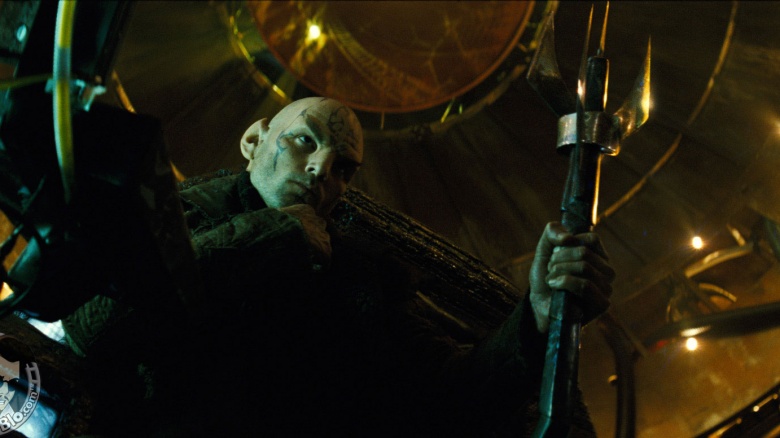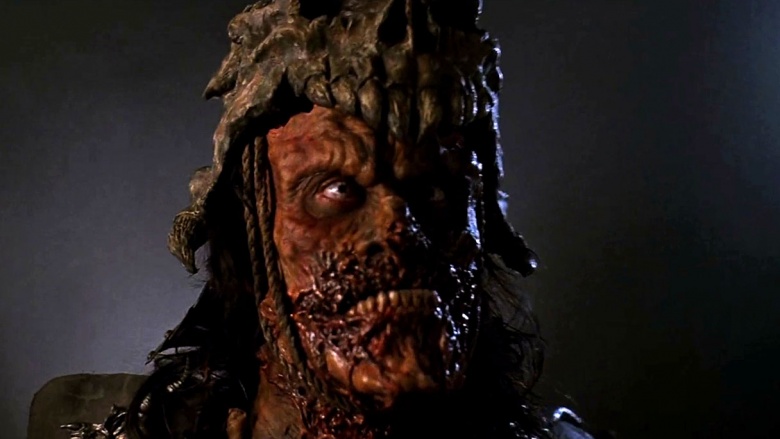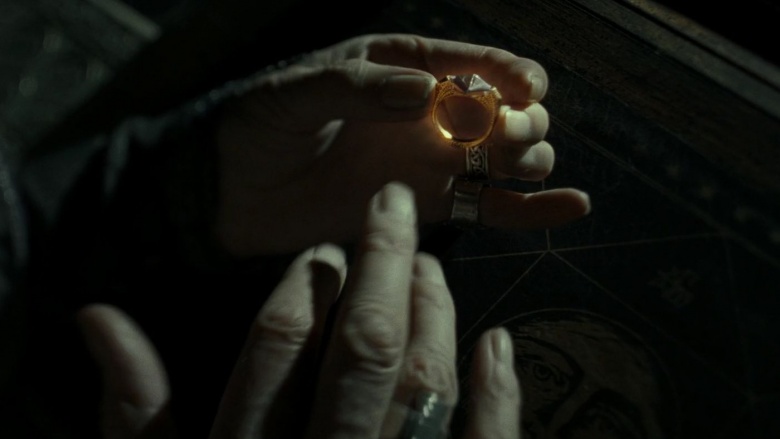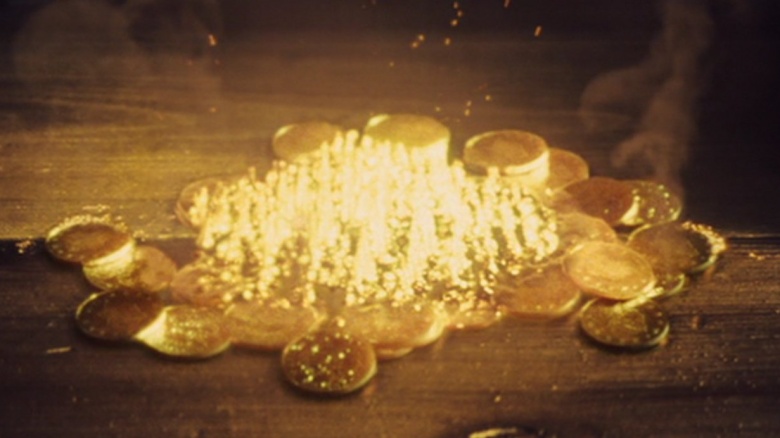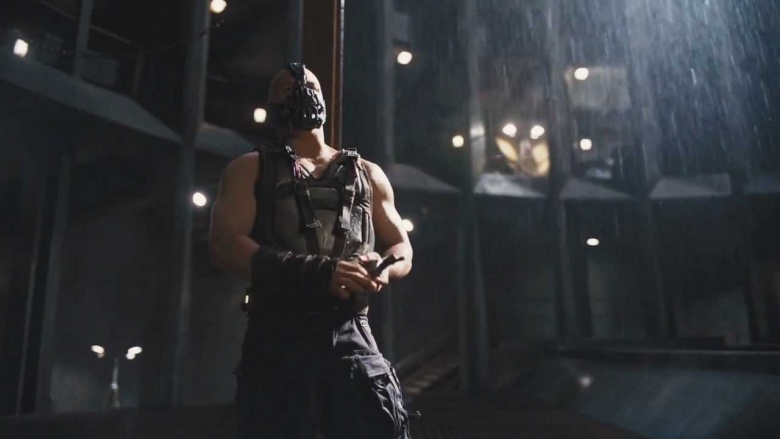Movie Plans That Should Have Worked
Plans, schemes, plots, and good ole' diabolical machinations—no matter what you call it, we all love it when our movie characters have goals. Part of the joy of The Dark Knight, for example, lies in our appreciation for the intricacy of the Joker's evil plot, especially compared to the chaotic, random appearance of it all. It's hard to observe a brilliant plan and not secretly hope it succeeds; it's kind of like how you can't look at an elaborate setup of dominoes without a prickling urge to knock the first one over and set it all in motion.
But not all of these schemes go off without a hitch, and sometimes even the most carefully laid plans blow up in a character's face. Sometimes, in fact, it happens for reasons that could have easily taken care of if they'd only been more observant.
Star Trek: Nero was one smart decision from winning
Nero has a ship from hundreds of years in the future, with all the futuristic weapons that implies. He defeated an armada of Starfleet ships like it was nothing. So naturally, he starts with all the advantages and begins his quest to destroy the Federation by sucking all the planets into black holes. Let's ignore the fact that he has a means of travelling through time and could have gone anywhere and done anything (like warn his doomed planet of their impending destruction so they could evacuate or prepare in any way, perhaps). But we'll go ahead and chalk that one up to the blind thirst for revenge that comes with being imprisoned and tortured by Klingons for 25 years.
But Nero just had to drill to the center of each planet, wasting precious time in the process. Why not just fly by, release his deadly red matter in orbit, and zip away from the planetary destruction? When it comes to black holes, the core of a planet and a few tens of thousands of miles above its surface are virtually the same thing. No planet would survive either situation, but Nero wastes his time drilling, giving Kirk enough time to mount the rescue we all knew was coming.
Army of Darkness: Bad Ash doesn't get his hands on the Necronomicon
In Army of Darkness, the intermediary installment between Evil Dead and Ash vs. Evil Dead, Bad Ash (the evil clone of the main character, Ash) is closing in on the castle with a force far superior to that of those defending it. Not only does he have numbers, but his army is undead, so they can't be killed, tired, or reasoned with.
Ash himself had just returned to the castle after succeeding in his quest to retrieve the Necronomicon, an evil book of spells bound in human flesh (which is what released Bad Ash in the first place). Ash struck a deal with the castle's friendly neighborhood wizard, who agreed to send him back to his own time if he retrieved the Necronomicon. Ash didn't really care about the denizens of the castle and demanded the wizard honor the deal, regardless of the castle's impending doom.
Because he is Ash in almost every way, Bad Ash kidnaps Ash's love interest just before the attack so he can keep her for himself, giving Ash a reason to stay and fight rather than return to his own time. And Ash is the only reason the castle's defenders are able to fend off Bad Ash and his undead army: he teaches them how to fight, make gunpowder, and squares off against Bad Ash himself at the very end. If he had just waited to capture the girl until after he had taken the castle, Ash would've been long gone back to his own time, and there's no way Bad Ash would've lost.
Perhaps Bad Ash was just trying to antagonize Ash in any way possible, but he was created out of the evil that was released from the Necronomicon. His goal was to retrieve the book and presumably use its power to wreak as much havoc as possible. And Bad Ash definitely knew that Ash would've left if he didn't kidnap the girl, or could have easily reasoned it out—since he was literally born out of Ash, it's implied he has complete knowledge of the events prior to his "birth," including Ash's affection for the girl and his unrelenting desire to return home.
Harry Potter: Dumbledore just gives up and dies
In the sixth installment of the Harry Potter franchise, Dumbledore figures out Voldemort is making horcruxes and sets out to destroy them on his own. It's likely that he might have succeeded in finding more if he hadn't had a lapse in judgement and put on Marvolo Riddle's ring—which had been turned into a horcrux—and fallen prey to a curse that would've killed him right then and there if not for his sheer power as a wizard. When he returned to Hogwarts, Snape was able to contain the curse to his hand, but explained that it wouldn't hold forever, giving Dumbledore roughly a year to live.
Because of this, Dumbledore has to resort to his backup plan, Harry, to destroy the remaining horcruxes. But Dumbledore's initial plan never should have failed, and he shouldn't have died: Snape very specifically states that the curse has been contained in Dumbledore's hand, which means they probably could have saved him if they'd just amputated it. If losing the use of his hand was a problem (the man was on a journey to destroy horcruxes, after all), they could have just conjured a magical replacement, like the one Voldemort made for Peter Pettigrew. It's never described explicitly as dark magic, so it should have been within the realm of possibility for Dumbledore.
One possible counterpoint is that he wouldn't have been able to sacrifice himself to save Draco—but there are ways around that too. He allowed Draco to disarm him because he knew he was going to sacrifice himself. If this hadn't been the case, he could have stunned Draco and hidden him away safely with the Order. He only needed to sacrifice himself because he was already dying—and that was only true because his cursed hand was still attached.
Cowboys vs. Aliens: the aliens just had to probe everyone
For the sake of this discussion, let's ignore the fact that we're talking about a ridiculous plot in which cowboy James Bond and Han Solo team up to send them there rootin' tootin' aliens back where they came from. It's silly, ridiculous, and a lot of fun, but the aliens really need to get their act together.
Besides having technology so advanced it's mind-boggling that a few guys with six-shooters were able to dispatch them at all, look at it this way: the aliens wanted to steal Earth's gold for whatever reason. It's shiny, a source of fuel, they eat it, whatever. The point is that they desperately need it for something, however stupid that motivation for invading a planet might sound. And they start off with a huge advantage. They have technology we still don't have today, and it's in the 1800s—and they don't even invade directly. They just steal the gold from right under people's noses without a peep. It just turns into liquid and floats up into the sky. Because science.
Rather than continue their alien prospecting in secret, they start to be a little too obvious about things: leaving half of their spaceship sticking out of the ground, flying directly overhead during the day, and kidnapping humans for no discernible reason in an incredibly over-the-top fashion. If they had just stayed incognito and never attracted attention, they could've pilfered our gold and been on their way.
The Dark Knight Rises: Bane loses because he can't hide corpses
Bane crafted a plan with so many moving parts it would make the Joker proud, but it's all undone by his irresponsible method of corpse disposal. One of the first times we see John Blake (a.k.a. Robin), he's investigating yet another body that has washed out of a spillway in the sewers. In fact, that's the only reason he knows where to find Commissioner Gordon when he snoops around a bit too much and Bane tries to kill him—Blake feels so strongly he's going to wash out there that, when Gordon disappears into the sewer and he can't follow, he immediately runs to the spillway. If Blake didn't know where to find him, he would have drowned then and there.
If Gordon drowns in that spillway, there's no one to put the signal jammer on Bane's bomb. And if there's no signal jammer on the bomb, it blows up when Talia presses the switch near the end. Bye bye, Gotham. Evil plan accomplished.
But here's the thing: why was Bane just arbitrarily throwing corpses into the spillway? He was in control of construction companies that were pouring explosive cement all over Gotham; why couldn't he just get his Dillinger on and throw them in with the mixture like an old-timey mobster? The explosives certainly weren't discovered until it was too late, so it would have been the perfect place for the bodies.
Bane was definitely concerned about secrecy and not just flaunting his power, because when Gordon escapes and the henchmen tell Bane he's dead, Bane says "Show me his body." The police commissioner getting away with knowledge of his operation is definitely not a good thing. The only reason he isn't discovered sooner is that no one believes Gordon's story. The guard mentions there's no way to determine where Gordon's body went, so Bane has been knowingly dumping dead bodies into a waterway that could lead anywhere. It all seems kind of irresponsible for a plan that depends on secrecy—even for a homicidal maniac.

